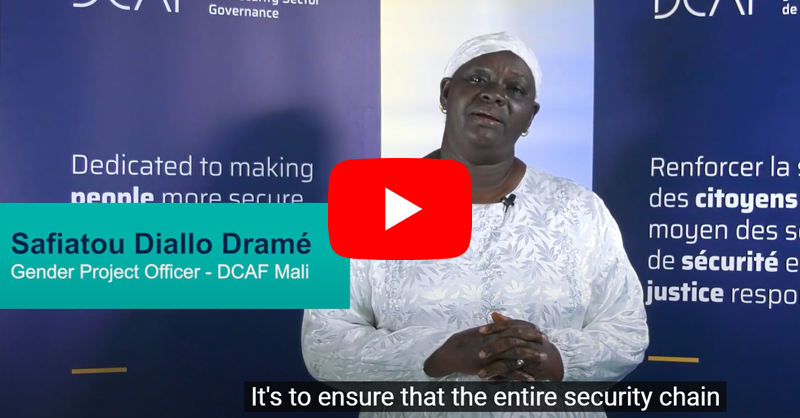Understanding how GBV capacity-building in peacetime has an impact during war - Mali case study
Authors
Safiatou Diallo Dramé and Souleymane Niaré
Description
In recent years, internationally backed SSR initiatives in Mali have focused on the delivery of gender and gender-based violence training to the Malian National Police and National Gendarmerie, under the assumption that institutionalizing gender mainstreaming will contribute to preventing and responding to gender-based violence, including conflict-related sexual violence .
The study finds that capacity building has contributed to greater awareness and knowledge of gender-based violence among security personnel, paving the way for other institutional gender-related initiatives.
However, capacity building has had a limited impact on effective conflict-related sexual violence response, as challenges related to limited resources, inadequate laws, and societal stigma persist. Further, trainings that tend to focus on technical skills rather that institutional capacity often yield short term results.
Overall, this study reveals the need to review the concept of capacity building to prioritise institutional reform and long-term approaches, within a framework of increased coordination between national and international actors.
Watch this interview with Safiatou Diallo, research author, explaining what the international community and national institutions should be doing differently after reading the report:

The report is part of the DCAF’s “Enhancing SSG/R Policy & Practice Initiative” funded by the Netherlands’ Ministry of Foreign Affairs.
The project seeks to determine the factors that facilitate or limit the impact of gender-based violence capacity building delivered in peacetime on security sector response in times of conflict or war, with the goal of developing recommendations for improving the efficiency and sustainability of SSR interventions.
The project features case studies from Mali and Ukraine and a main summary report: SSR and Conflict-Related Sexual Violence: Understanding the impacts of peacetime GBV capacity-building.
 Share on Facebook
Share on Facebook Share on Linkedin
Share on Linkedin Share on Twitter
Share on Twitter